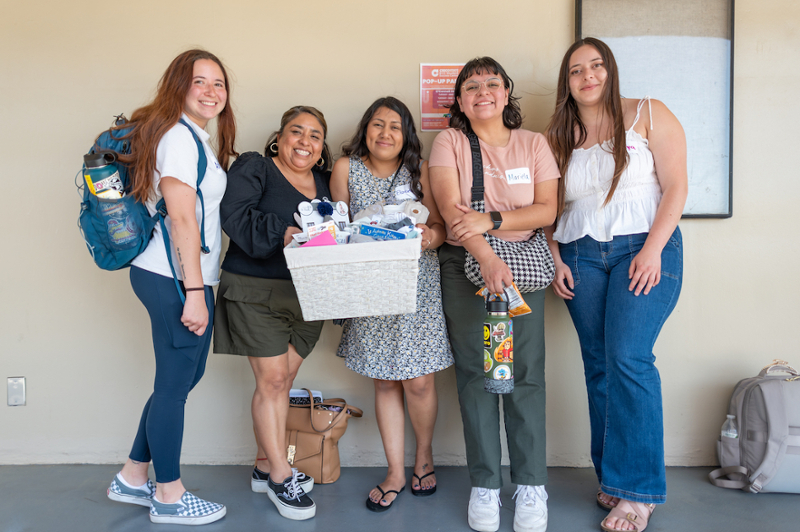Students Gain Success Through $13.4 Million Grant

Between natural disasters, the pandemic, and rising inflation, Northern California communities—many of which are rural— have been faced with countless challenges over the last decade. In rural areas, schools often become the central hub of the community and teachers are considered an essential part of the community, especially in times of need.
Chico State’s School of Education (SOE) has always recognized just how important educators are in general and to Chico State’s service region. The region makes up a large part of Northern California and includes eleven counties, where there is an ever-increasing need for dedicated educators who can continue to help strengthen, at times rebuild and positively impact their communities.
The SOE not only serves the region by credentialing future teachers, but also through working with community partners to target challenges educators face by offering financial and various forms of support to schools, educators, and even K-12 students.
Angela Trethewey, Dean of the College of Communication and Education, which houses the SOE, has seen first-hand just how much the SOE has done to bolster the North State region.
“The SOE has stepped up its efforts to ensure that children in our rural region have access to wonderful teachers who are familiar with and responsive to the needs of our rural communities,” she said. “They have worked hard to serve our region by securing external funding to provide direct support to students who wouldn’t otherwise be able to attend college, enter the credential program, or give back to their local communities when they return as rural school teachers.”
In the fall of 2022, the SOE, led by Principal Investigator, Dr. Ben Seipel, was awarded a $13.4 million, three-year grant towards a program called the Growing Responsive, Equitable, Adaptable and Transformative (GREAT) Teachers Pipeline project. Of that award, $12 million will go directly towards covering the tuition costs of Master's degree students, credential candidate students, pathways and undergraduate students interested in careers in teaching.
“We are trying to remove the barriers,” said Tal Slemrod, SOE’s Educational Technology and Distance Learning Program Coordinator.
Slemrod is one of the grant program’s Co-Principal Investigators who will help guide students throughout the program. The faculty working on this grant often get to know the stories of students, which reveal the many challenges they face in pursuing a career in education.
In Spring of 2023, the grant program welcomed 147 total participants with 140 of those participants receiving full or partial stipends. Undergraduate students and pre-credential students were eligible for up to $6,250, credential candidates for up to $12,500 and Master’s students for up to $7,000 of support each semester. The accepted applicants were chosen based on need and a commitment to remain in the region once their education is complete.
“Encouraging students to remain in the area is a huge priority for the SOE, as the need for qualified, diverse, and dedicated teachers is a priority for the state, our university, and North State our communities,” Trethewey adds.
In addition to financial support, the grant program offers participants mentorship and professional development opportunities that often include social emotional learning.
“We want to look at the bigger picture too — COVID trauma, the Camp Fire trauma — social emotional learning right now is huge and so needed,” said Karen Schreder, the Education Specialist Program Pathway Coordinator for the SOE and recruitment lead for the Great Teacher Pipeline Grant.
“Part of this grant is to not only say we want you to be a teacher, but we want you to be an emotionally healthy teacher,” she adds.
The Pipeline Grant program has six mandatory professional development opportunities that focus on social emotional learning and healing centered practices. Grant participants are also connected to affinity groups that encourage students to build connections with their peers and help them find additional support.
As the Pipeline Grant program evolves, the SOE faculty and staff are continuously looking for new and innovative ways to serve future educators within the North State region.
“What we're trying to get across with the grant and with our recruitment is that being a teacher has so many benefits, and it's so meaningful— especially when they go back to their hometown,” Schreder said. “Being a teacher is an elevated position and very respected. We want to make sure to convey that to the community through our efforts.”
——
Applications for the Spring 2024 cohort open October 1st. Students who are interested in applying can learn about the application process now at www.csuchico.edu/soe/financial-aid/norcal-great/application.shtml
